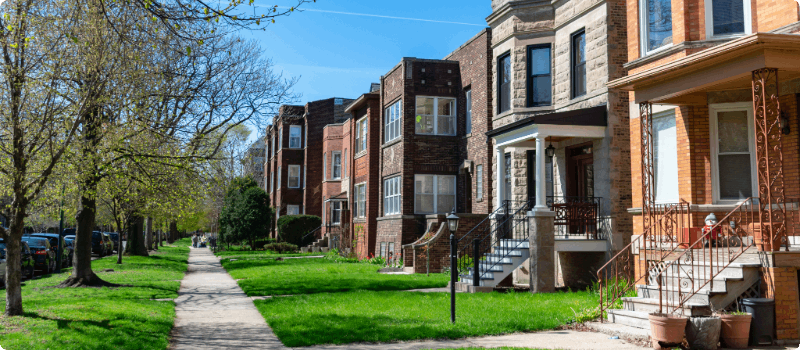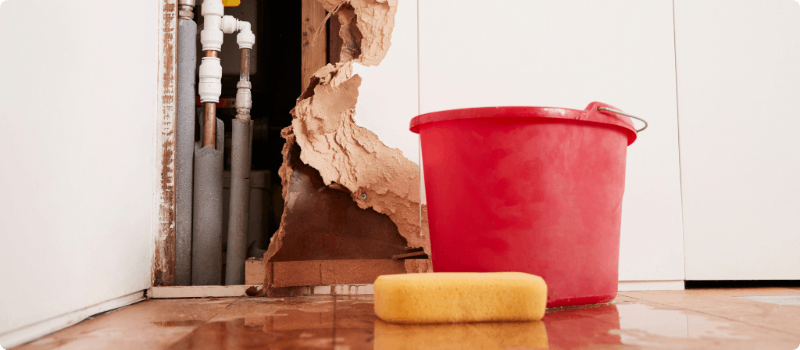What Is an HOA Fee?
Updated April 6, 2016 . AmFam Team
If you’re considering buying a condo or townhome, you may have heard about Homeowners Association fees. But what’s the purpose of an HOA, how much will you pay for dues and does your HOA cover insurance? We’ll cover it all and more.

What are HOA fees and what do they cover?
Homeowners Association fees are very common if you live in a condo or housing development. HOAs are responsible for collecting monthly or annual fees from each resident (including you!) which go into a “reserve” of money. This collection of funds is intended to help keep the building you share looking and working beautifully all year long. Some of the HOA dues go into regular maintenance like lawn care and garbage collection, but other amounts are saved for special projects like repaving the parking lot, repairing the roof or fixing a pesky broken elevator.

Do HOA fees cover insurance?
Paying your HOA fees doesn’t mean that you have insurance coverage. Remember, your HOA fees provide coverage for the exterior structure of your building — it doesn’t cover anything inside your structure, like your personal property. It also doesn’t offer liability protection for accidents that occur inside your unit. That’s why you’ll need to purchase homeowners insurance to protect your home, belongings, and to have liability coverage which will cover bodily injury, medical expenses and legal fees if someone were injured on your property. Find out more about the protection homeowners insurance provides.

Average HOA Fees
HOA fee amounts vary due to a number of reasons. Things like property type, location, number of units that are occupied or unoccupied, and amenities all play a role in how your fees are determined. Usually, the more services and amenities your HOA offers, the higher the fees.
When searching for a home or condo that has a homeowners association fee, make sure to confirm the total HOA dues in the community you’re interested in buying into.
So how exactly are HOA fees determined? Let’s take a closer look.

HOA Fee Cost Basics
HOA fees don't have to be complicated. Here are some basics to help get you in the know and better understand what you're paying for:
Price. The more upscale the building or neighborhood, the higher the fees are likely to be.
Upgrades. If your condo needs a new roof, new parking lot, improved HVAC system or hallway decor, those costs will come from the HOA’s reserves.
Special cases. If there isn’t enough money in the reserves, you and your fellow residents could have to pay a special assessment fee if the association approves a project through a vote.
Factors. Fees for each unit are typically based on its size and/or number of bedrooms, etc.

What happens if you don’t pay HOA fees?
Not paying your HOA fees may result in the HOA taking legal action. It depends on your specific contract, but the association may first send a warning letter or charge a late fee. Others may initiate a lawsuit, or in the most serious situations, they can put a lien on the property or foreclose it.

What to Ask Your HOA About Fees
Fees are handled differently for each association. It’s a great idea to get as many details as you can before you move in by asking the following questions:
- What services and expenses are covered by the HOA fees?
- What’s the process for HOA fee increases?
- What is the dues history for the HOA over the past 5 to 10 years?
- How much money is in the HOA's reserve?
- Has the association asked for special assessments in the past, and are any planned for the future?
- How much does the HOA pay for insurance and what catastrophes are covered?
Just starting your search for a condo? Make sure to connect with an American Family Insurance agent if you have any questions about your homeowners or condo insurance — they’re ready to get you the coverage you need for the peace of mind you deserve.
This article is for informational purposes only and based on information that is widely available. This information does not, and is not intended to, constitute legal or financial advice. You should contact a professional for advice specific to your situation. We do not make any guarantees or promise any results based on this information.
Tools & Resources
NextScripts
JSS component is missing React implementation. See the developer console for more information.

